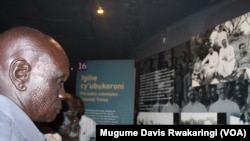Flawed decision making by the international community failed to contain the horrific 1994 genocide in Rwanda, a new report found.
The findings were released Monday to coincide with the 21st anniversary of the start of the genocide and stem from a multi-national conference last year at The Hague.
The conference was sponsored by the U.S. Holocaust Memorial Museum and The Hague Institute for Global Justice.
Former peacekeepers, peacemakers and monitors from more than a dozen countries were gathered to analyze the events and international response in order to "shed light on modern day challenges."
The report, based on a 230-page transcript of the two-day conference, found several points of concern in how the international system functions.
Some of the findings include:
- The negotiation and implementation phases of the peace accords reached in Arusha, Tanzania were out of sync with each other.
- Ordinary Rwandans were poorly informed of the peace process taking place in Arusha.
- Western governments failed to develop a common policy on Rwanda that could have prevented the genocide.
- The international community staked everything on the success of the Arusha peace agreement and failed to develop a backup plan.
- The conference on Rwanda was the first stage in a broader effort to examine international decision making in the event of genocide.
Conference organizers said that later this year a second conference will be held at The Hague to study the fall of United Nations "safe areas" in Srebrenica during the Bosnian war. The failure by U.N. peacekeepers to protect the besieged enclave of Srebrenica in northeastern Bosnia led to the massacre of more than 8,000 men and boys in 1995.





